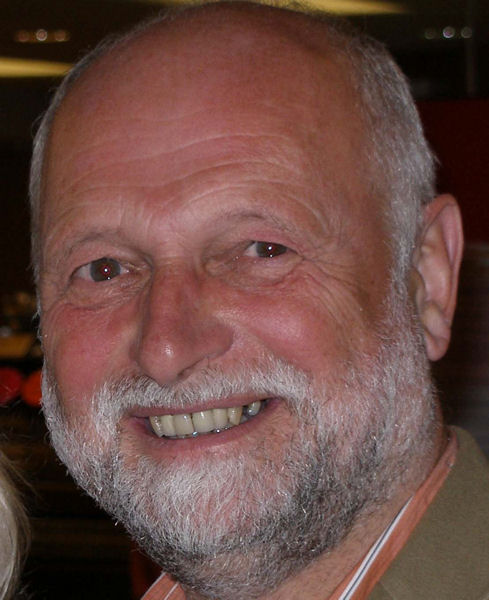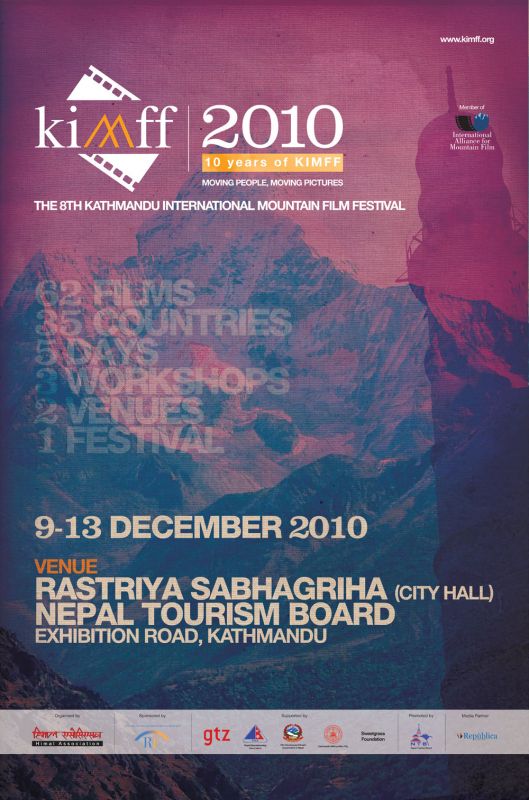Cairo International Film Festival president, Dr Ezzat-Abou-Ouf, talks to Jeremy Colson about this year's festival and his hopes for the future.
CAIRO ~ 20 November 2009
Could you tell us a bit about yourself, your background?
I graduated from medical school but still being young I wanted to practice something more creative than medicine so I enrolled at the conservatoire and learned more about music. After that I played western and jazz music. It was a family affair, me and my sisters, we sang in arabic and we were really quite successful. I think we probably had a major influence on the performance of music here in Egypt, and I enjoyed it enormously. That experience led me into the film world and I started acting in 1991. I have appeared in 67 films since 1991.
You have been director of CIFF for a few years now, what changes have you made during that time?
I’ve been director of the festival for four years, this is my fourth festival. It’s really for others to judge what I have achieved, but I think I have managed to bring style back to the event. When I became president it was like the festival had got into a rut. I don’t wish to criticise, we all have our strengths and weaknesses, but there was no harmony within the team. The festival boards and the secretariat had been together for as long as 24 years in some cases and I think they had lost their vitality. I hope I have brought a new energy to the festival, a spirit that was lacking. And I have tried to make it as elegant as possible. I believe the festival is now revitalised, thanks be to God.
Has the festival this year made an even bigger impact than in previous years, and if so in what way?
We have had fewer stars this year but I don’t think there’s any doubt about the quality of our film selection. We have screened some important films here this year and clearly there is more and more competition to have films shown at CIFF. We had more submissions than ever, 610 this year, and I think this show that the festival is increasingly well regarded by film-makers worldwide. We have actually shown 152 movies from 67 countries.
What was your budget this year, how does it compare with last year and previous years?
Our budget was a bit higher this year but the main change has been because of sponsorship. The idea of sponsoring had not been pursued much, but I introduced it in a more obvious way when I became president of the festival four years ago. I formalised it four years ago. There is still some way to go in getting potential sponsors to understand the value of being associated with a film festival. I am confident that we will build on our success so far, but we still have work to do in developing awareness.
Are you concerned about competition from other festivals, particularly from the Gulf countries?
For me competition is very important. Without it you would be less sharp. I don’t feel bad towards these other festivals, in fact I feel good about it because it means we have to get better. We must become better to be able to compete, so having competition is an advantage. Also, it’s not just about money. You can’t make a festival world-class just by throwing a lot of money at it. It takes time to for a festival to mature. We have the benefit of a long history, not just the 33 years of the festival, but 100 years of film-making in this country with everything that goes with that, production facilities, stars, distribution and so on. We have a strong film culture that is deeply rooted. Nobody else in the region has what we have. You can’t buy a film culture, it is something that grows in a society, you can plant the seeds but it takes decades to develop.
What is the primary objective of the Cairo film festival?
That hasn’t changed. It always has been constant. The main objective is to to showcase the Egyptian film industry to the world and also of course to expose local audiences to foreign movies. The film industry here is undergoing a resurgence. At the peak we used to make about 180 movies a year in Egypt. There was a boom in the seventies and eighties, then it dropped back to seven or eight a year. We are now back up to about 50 a year and this is a very good sign. It’s very encouraging.
What improvements would you like to make to the festival?
The film market is an area that we know we can improve upon. At the moment it is one of our defects and we are about to change it. We have decided that next year we will have professional co-operation to handle this market. We believe it is very important for any festival because it can be a big attraction. A good film market brings in film industry professionals, more international film-makers, We want to attract more industry professionals to the festival. Movies transcend language, they are a language in themselves, a silent language that brings people together. The more we communicate the more we will have we have peace and understanding in the world. We wish to play a part in this.
Does the arrival of digital cinema create new opportunities for independent Egyptian film-makers?
I believe it does. This is the fourth year that we have screened digital movies. We have 10 of them from ten different countries, but as yet none from Egypt. It’s a new industry here. Some of our theatres are going digital, RED cameras are out there and this will definitely encourage the production of indie movies.
How do you wish to position WFF on the international line-up of festivals?
Well, as I said, we have a deep-rooted film culture here with film-savvy audiences, so I think we can rightly claim to have an element of maturity and sophistication that isn’t to be found anywhere else in the Middle East or Africa. We are the only country in the region in this position, the only one with a long-standing tradition both in production and viewing.
Would you like to see a documentary section in future festivals?
We don’t have any plans to show documentaries. It’s outside our area of expertise. We are known for full-length feature films and have developed a good reputation for this. Documentaries and shorts have their place but we believe it is better to focus on our strengths. The main change in next year’s festival will be a much expanded film market.
Indian cinema has been the focus of this year’s festival, which country will you be honouring next year?
Well, I think it will probably be one of the Asian countries. China is definitely on our short-list. They were our country of choice six years ago, but they have done so much since then, they have seen so many changes. We may well choose them again, but there are other countries too, including South Korea, Cambodia and Singapore.
Jeremy Colson
 Colson Jeremy
Colson Jeremy 



























